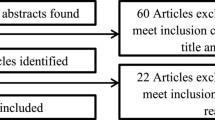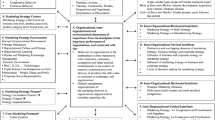Abstract
This paper discusses the different facets of crisis as experienced within the pharmaceutical industry but which are also prevalent throughout other industries. It highlights the importance of early identification and management of crises and issues, which in return are strongly intertwined with a fundamental positive internal corporate climate. A corporate philosophy should always embrace crisis management with the attitude of ‘when’ and not ‘if’; therefore, a company should act today and not tomorrow once a crisis is on its doorstep. Preparation is of utmost importance and there are several items that can be addressed even before a crisis has arisen. Further, this paper also provides guidance on how to deal with the media, what to do and what not to do, and how to appoint the appropriate spokesperson. In this era of fast exchange of information, crisis, which previously may have stayed behind corporate doors, may not do so any longer. Image is very important and should therefore not be risked. Crisis and issue management should therefore be integrated in every company’s philosophy and standard operating procedures.

Similar content being viewed by others
References
ICM CRISIS REPORT: News Coverage of Business Crises During 2002 [online]. Available from URL: http://www.crisisexperts.com/02creport.htm [Accessed 2004 Jan 13]
Mreschar RL. Cleaning up the Rhine: how this famous river has been restored to its former glory. Max Planck Res 2001; 1: 55–7
Grove-White R. Brent Spar rewrote the rules. (Shell Oil Co.’s decision to dispose the Brent Spar oil platform in the North Sea) [online]. Available from URL: http://www.findarticles.com/cf_dls/m0FQP/n4339_v126/20534418/p5/article.jhtml?.term= [Accessed 2004 Jan 13]
Abraham J, Sheppard J, Reed T. Rethinking transparency and accountability in medicines regulation in the United Kingdom. BMJ 1999 Jan; 318(7175): 46–7
Dyer C. New report criticises Upjohn over Halcion. BMJ 1994 May; 308(6940): 1321–2
Tuffs A. Bayer faces shake up after Lipobay withdrawn. BMJ 2001 Aug; 323(7310): 828
Goldberg RA. The food wars: a potential peace. J Law Med Ethics 2000; 28(4 Suppl.): 39–45
In’t Nieuws [online]. Available from URL: http://www.kijk.nl/artikel.jsp?.art=6117 [Accessed 2004 Jan 13]
Widmer L. When your name is at risk [online]. Available from URL: http://www.findarticles.com/cf_dls/m0BJK/14_11/67315650/p1/article.jhtml [Accessed 2004 Jan 13]
Lerbinger O. The crisis manager: facing risk and responsibility. Mahwah (NJ): Lawrence Erlbaum Associates, 1997
More E. Crisis management and communication in Australian organisations. Aust J Commun 1995; 22(1): 31–47
Wong PTP. The positive psychology of ‘climate management’ [online]. Available from URL: http://www.meaning.ca/articles/presidents_column/climate_management.html [Accessed 2004 Jan 13]
European Agency for the Evaluation of Medicinal Products. Crisis management plan regarding centrally authorised products for human use. London: Human Medicines Evaluation Unit (CPMP/388/97), 1997 Sep 24
Vessenes PM. Delegation of authority [online]. Available from URL: http://www.fpanet.org/journal/articles/2001_Issues/jfp0801-art7.cfm [Accessed 2004 Jan 13]
Fink S. Crisis management: planning for the inevitable. Newark (NJ): Amacom, 1986
Boyd C. Herald of Free Enterprise car ferry disaster: case studies in Corporate Social Policy in Post, Frederick, Lawrence and Weber [online]. Available from URL: http://business.unisa.edu.au/cobar/corpresp/case_studies/study3.htm [Accessed 2004 Jan 13]
Strand P. Gerber ignores ‘Tylenol Textbook’. Advert Age 1986; 57(19): 3–5
Murray E, Shohen S. Lessons from the Tylenol tragedy on surviving a corporate crisis. Med Mark Media 1992; 27(2): 14–9
Petrick J, Quinn J. Management ethics: integrity at work. New Delhi: Sage, 1997
Acknowledgements
The author would like to acknowledge the help of Ms Anita van den Oetelaar. No sources of funding were used to assist in the preparation of this article. The authors have no potential conflicts of interest that are directly relevant to the contents of this article.
Author information
Authors and Affiliations
Corresponding author
Rights and permissions
About this article
Cite this article
Koster, M.C., Politis-Norton, H. Crisis Management Strategies. Drug-Safety 27, 603–608 (2004). https://doi.org/10.2165/00002018-200427080-00011
Published:
Issue Date:
DOI: https://doi.org/10.2165/00002018-200427080-00011




